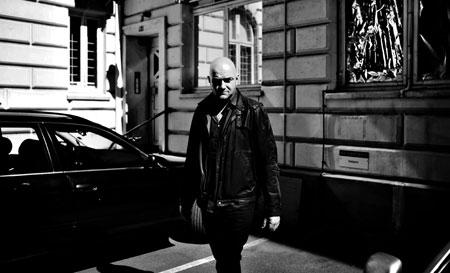The boxes and papers piled high in Jesper Jack's office provide a vivid snapshot of a day in the life of the DFI's short and documentary film commissioner. The room speaks volumes about the man and his jam-packed workday.
"Danish film spends a relatively large amount of money on development, and that's essential if we want innovation and artistically powerful films."
In fact, as Jack notes shortly into our talk about project development in Danish documentaries, rooms are one of the things he likes to discuss with Danish filmmakers. What rooms will a film be set in? What does a room say? What difference does it make if a dialogue takes place in one room rather than another? Since all aspects of reality add to the storytelling, the DFI supports the examining of such issues in the development process, before shooting starts.
Developement Key to Succes
The DFI puts a considerable amount of its subsidy funds for documentaries into the development phase, based on a desire to specify projects before they go into production. The development phase is absolutely central, Jack contends, because it involves important considerations about how to take responsibility for reality. Clarifying what you want the future film to examine, you develop "a device for capturing happy accidents," as he puts is.
"The DFI puts proportionally more funds into development than other film institutes do. Films are not sent into production until they are truly ready. For example, we allow urgent shots to be made during the film's development – before a letter of commitment has been written – so that projects can mature, creatively and financially, better than before. We try to think outside the box in terms of original development processes, according to the thesis that creative projects produce creative results," Jack says. In his view, access to development funds is the key to understanding the relative success of Danish documentaries at the moment.
Specifying Processes
In Jack's opinion, the development of documentaries suffers from a confusion of terminology. An absence of standards, in scriptwriting, say, can make it difficult to have a dialogue.
"A development process can involve many different things. A diversity of opinion is fine, but some processes can get a little murky because there is so much confusion about nomenclature. Are we talking about the same thing when we say 'treatment' or 'genre'? Do we mean the same thing when we use the term 'dramaturgy'?"
Fortunately, Jack is finding that Danish directors today are more interested than before in discussing methods and working creatively in development.
"I don't think someone has to work out a complete roadmap before they start shooting, but a project is strengthened when you have systematic discussions about the script and methods as well as aesthetics. It's my experience that we, in the documentary film world, tend to be too diffuse, so having more agreement about what we are really talking about helps. There is progress on that front of Danish film these days. People are working to consciously put words to certain devices and genre considerations, and I think several recent films have benefited from this specifying of processes."
Responsibility For Reality
For Jack, the development phase is about honing your eye. While there For Jack, the development phase is about honing your eye. While there used to be a tendency to turn the camera on the world and then react to the footage afterwards, Jack sees today's Danish filmmakers putting a lot of thought into what they want to tell before they turn their eye on the world.
In his opinion, the National Film School of Denmark has been central in making it more legitimate to discuss methods, and those discussions are making for better
films. This process is not about finding all the answers but getting to what you want to depict and becoming aware of how best to capture it cinematically. You have to take responsibility for the fact that what you want to tell becomes part of the film – in Jack's own experience as a documentarian, you can't leave it up to reality to take responsibility for itself.
"As a documentarian, you might find that the couple you'll be filming are head over heels in love every day you're with them. Then on the day you start shooting, they suddenly have a big fight. What's the truth then?
"I have had the experience of editing together a film that almost became a total pack of lies because I took a strictly truth-seeking approach to filmmaking and didn't want to influence the shoot. So I ended up with whatever footage I happened to get. A moment of truth can tell a lie if it's taken in isolation and not contextualised, which can require manipulation," he says.
"A lot of excellent Danish directors employ narrative devices in their films and they're not afraid to stage things in one form or another. The result is compelling films like "Armadillo" or "Into Eternity". But this approach to reality takes thorough initial deliberation. That's one reason why it's so important to have funds for development and why it's important that subsidy schemes are willing to take risks, since it's often so hard to see what direction a project will be going in.
"Danish film spends a relatively large amount of money on development, and that's essential if we want innovation and artistically powerful films," Jack says, enthusiastically pulling out an original presentation for a potential film from one of the stacks in his office.
How that project will end up nobody knows, but the discussions about it are in full swing.
